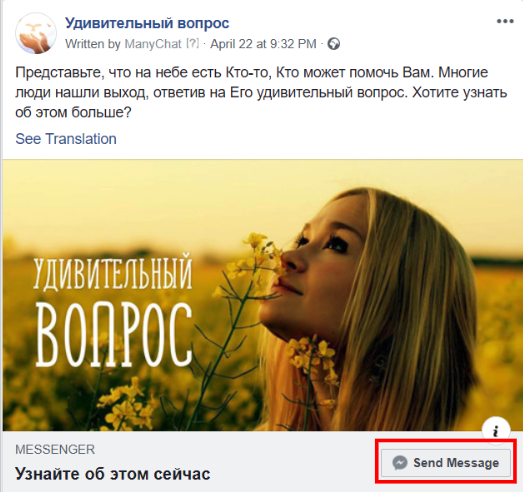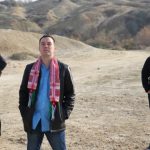“What do you want me to do for you?” It is a question from the Bible that has come to be called the Amazing Question. The question is from Luke 18:35, when Jesus encountered a blind beggar while on his way to Jericho.
And he cried out, “Jesus, Son of David, have mercy on me!” And those who were in front rebuked him, telling him to be silent. But he cried out all the more, “Son of David, have mercy on me!” And Jesus stopped and commanded him to be brought to him. And when he came near, He [Jesus] asked him, “What do you want me to do for you?” He said, “Lord, let me recover my sight.” And Jesus said to him, “Recover your sight; your faith has made you well.” And immediately he recovered his sight and followed him, glorifying God. And all the people, when they saw it, gave praise to God.
Luke 18:35-43 (ESV)
The Amazing Question has been used by many to spark spiritual conversations and share the Gospel. The story has a natural segue to faith conversations, simply by asking, “If Jesus were to ask you that question, what would you say?”
“The Amazing Question is powerful because it uses Scripture, it puts Jesus in the center of the conversation, and it demonstrates that the God of the Bible wants to help you,” says Keith, a missionary with Cru.
Asking on Facebook
Kejdis and Rudina, missionaries in Central and Eastern Europe, are passionate about starting missional communities in urban areas, but finding the people with which to start those communities can be difficult. Since nearly 80% of the Internet users of his home country of Albania uses Facebook, they decided to create a project to see if asking the Amazing Question on Facebook could help people come to Christ and then get plugged into a local church.
“What if there was Someone who could help you? A lot of people have found a way out by answering His amazing question. Would you like to know more about it?”
Such read one of the Facebook ads created by their team utilizing the Amazing Question. The ads targeted 3 European cities. If anyone clicked “yes,” they were brought to a private Facebook chat featuring a JESUS film clip with a prompt for the people to enter what they would say to Jesus. A team of staff and volunteers responded to what was posted, prayed for and interacted with the seekers, and eventually challenged those who prayed to receive Christ to begin attending a local church.

These conversations were initiated by a chatbot, which was programmed to communicate, collect information on the seeker, and build personas. The staff and volunteers used Facebook Messenger, with the help of the bot, to communicate, due in part to bots having a better response rate than email.
This project was run for two weeks as a test to see if Facebook could be used for church planting. During that two-week period, $271 in Facebook ads resulted in more than 200,000 people visiting the websites, with almost 7,000 watching the video. The campaign resulted in more than 3,600 “subscribers,” people who are spiritually curious, have been identified, and have given the missionaries ongoing access to talk with them.
Prayer was an integral part of the process. A prayer team was mobilized to pray for each of the requests that came in. Anytime someone stated what they would ask Jesus to do, someone would intercede, praying for Jesus to do that. In addition, each of the volunteers and staff who responded to the requests began by praying for the person. After the campaign, some of the subscribers wrote back, excitedly telling about how their prayers had been answered.
What they wanted from Jesus
The things people wanted from Jesus were quite varied. Many were seeking answers about God or faith. “Tell me clearly the ultimate truth about God so that I won’t have any doubt of who He is,” said one person. “I would like to have faith,” said another. Others were much more pragmatic. “Heal me from rheumatism. I have been suffering for 5 years now from this sickness,” said another.
The person suffering from rheumatism eventually agreed to meet Kejdis for coffee. During the meeting, he shared that his parents followed the country’s dominant religion but he didn’t believe in God. Over the course of their discussions, however, the man eventually decided to follow Christ and is now attending Kejdis’s church.
Expansion of the strategy
After seeing the incredible fruit of the two-week project in three cities, the team now wants to expand the strategy throughout all of Central and Eastern Europe. “There are so many opportunities online,” says Rudina. “I hope this will encourage people to see the digital world as a mission field.”

